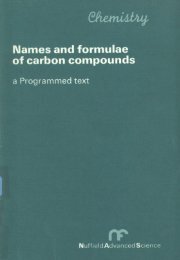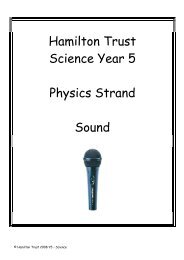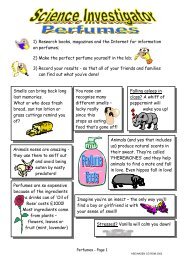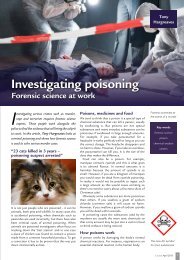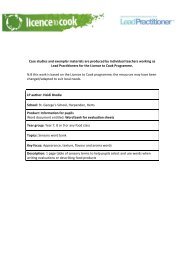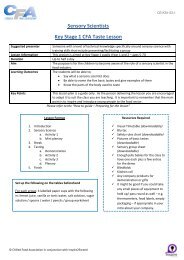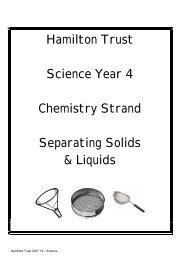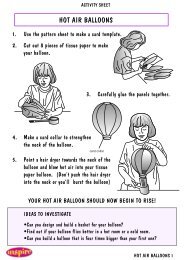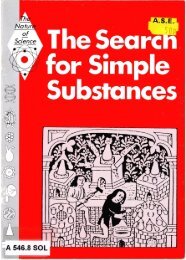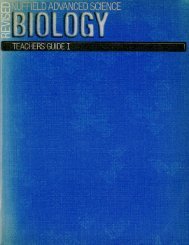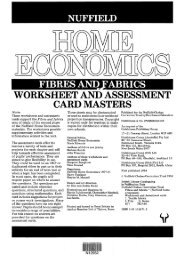Teachers' guide 2 - National STEM Centre
Teachers' guide 2 - National STEM Centre
Teachers' guide 2 - National STEM Centre
You also want an ePaper? Increase the reach of your titles
YUMPU automatically turns print PDFs into web optimized ePapers that Google loves.
304 Appendix 4<br />
4 Laboratory housekeeping<br />
It is essential that students be taught to set up apparatus neatly and to make<br />
sure that once set up it is free from hazard. This can only be done if the bench<br />
is free of unnecessary impedimenta. All chemicals that are used must be returned<br />
immediately to their proper place. It is also essential that students should wash<br />
their apparatus immediately after use when they are still aware of the contents.<br />
The benches should be cleared and all spillages dealt with, on the floor as well<br />
as the bench.<br />
A pair of stepladders should always be available to discourage the practice of<br />
using makeshift ladders (such as wooden boxes) to get materials from high<br />
places. Two dust bins should be available, one for glass only and the other for<br />
other laboratory waste.<br />
First aid in the laboratory<br />
First aid in the laboratory should be limited to keeping the patient comfortable<br />
until a doctor or ambulance arrives, except in minor accidents.<br />
Minor accidents<br />
Cuts - should be washed thoroughly with water and bound with a bandage or<br />
with lint and sticking plaster.<br />
Burns - should be covered with a sterile burns dressing. If blisters form these<br />
must not under any circumstances be broken. For mild acid or alkali burns,<br />
wash with water, neutralize with dilute sodium bicarbonate or citric acid solution<br />
respectively, and cover with a dressing soaked in sodium bicarbonate for<br />
acid burns and saline solution for alkaline burns.<br />
Eyes - For low concentrations of irritant vapour in the eyes, wash thoroughly<br />
with water. Use water only for washing out the eyes. Mild acid, alkaline, or<br />
saline solutions may have precipitated particles which aggravate the irritation.<br />
The presence of such solutions can inhibit the more natural, and safer, impulse<br />
to rush to a water tap. If in doubt, seek medical aid.<br />
Poison by ingestion - In the majority of cases the poison is spat out by the<br />
patient. In these cases, thorough washing with water is usually sufficient. However,<br />
common sense must dictate the course of action.<br />
Major accidents<br />
In all major accidents medical help should be sought immediately. All first aid<br />
cabinets should contain the names, addresses, and telephone numbers of local<br />
doctors, hospitals, and ambulance units.




